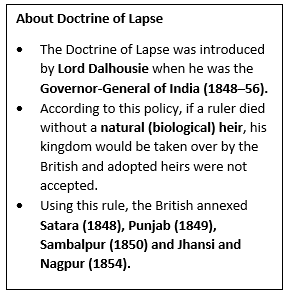You're all caught up—no notifications available.
Explore All Exams at KGS

All Exams
Explore All Exams at KGS
Khan Sir Courses
Geography I Polity I History | World Map I Indian Map I Economics I Biology
UPSC & State PSC
UPSC I BPSC I UP-PSC I MP-PSC
State Exams
UP I Bihar I MP | Rajasthan
NEET | JEE | CUET | Boards
NEET | JEE | CUET | Boards
Defence Exams
NDA I CDS I CAPF I AFCAT I SSB I Agniveer
Police Exams
UP SI | Bihar SI | Delhi Police | UP Constable
SSC Exams
CGL I CPO I CHSL I MTS I SSC GD I Delhi Police
Foundation Courses
Physics I Chemistry I Biology I History I Geography I Polity I NCERT I Math I English | Map I Reasoning
Railway Exams
RRB | RPF
Teaching Exams
TET | Teaching | UGC
Banking Exams
SBI | RBI | IBPS
Engineering Exams
Civil | Electrical | Mechanical
UGC NET
UGC NET/JRF
Current Affairs provides you with the best compilation of the Daily Current Affairs taking place across the globe: National, International, Sports, Science and Technology, Banking, Economy, Agreement, Appointments, Ranks, and Report and General Studies

Syllabus
GS 1: Modern History
Context: Recently, July 19 has marked 198th Birth anniversary of Mangal Pandey, a key figure in Revolt of 1857.
Early Life
Early Beginning
Role in Revolt of 1857
Significance of Awadh


Source
https://indianexpress.com/article/upsc-current-affairs/upsc-essentials/knowledge-nugget-mangal-pandeys-revolt-of-1857-history-upsc-10134999/

Decarbonisation of Global Shipping

China’s Construction of World Biggest Dam on Brahmaputra

Mangal Pandey

Alien plant species taking over native ecosystems

Genome Database Project of Gujarat

Mangal Pandey

Skill Indian Mission

Herfindahl-Hirschman Index

GLP–1 Drugs

Akash Prime Air Defence System

NCERT Books
Resources
We love learning. Through our innovative solutions, we encourage ourselves, our teams, and our Students to grow. We welcome and look for diverse perspectives and opinions because they enhance our decisions. We strive to understand the big picture and how we contribute to the company’s objectives. We approach challenges with optimism and harness the power of teamwork to accomplish our goals. These aren’t just pretty words to post on the office wall. This is who we are. It’s how we work. And it’s how we approach every interaction with each other and our Students.
Come with an open mind, hungry to learn, and you’ll experience unmatched personal and professional growth, a world of different backgrounds and perspectives, and the freedom to be you—every day. We strive to build and sustain diverse teams and foster a culture of belonging. Creating an inclusive environment where every students feels welcome, appreciated, and heard gives us something to feel (really) good about.
Get Free academic Counseling & Course Details
